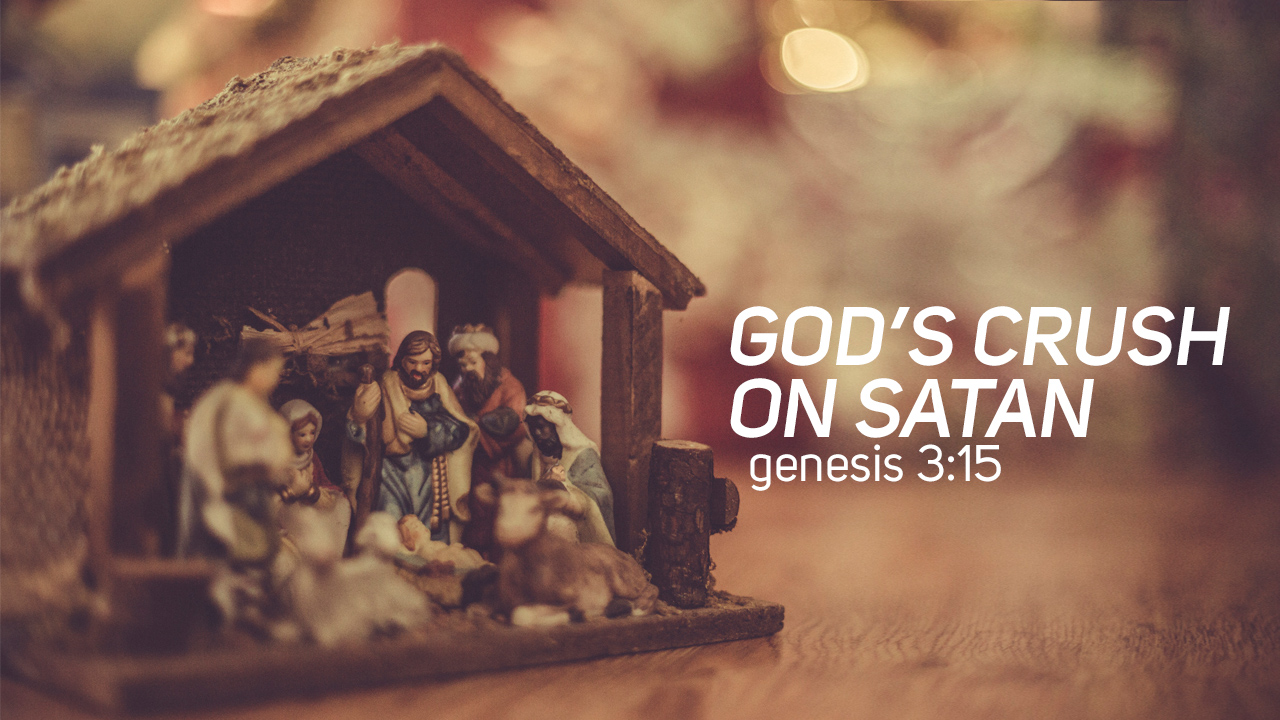
Surveying The Lambscape
The opening scene is a bleak landscape of snow and ice. All you see at first is something rapidly burrowing towards you under the snow. It abruptly stops and a mound appears on the surface.
Some objects are then thrown out from underground: a bottle of sun tan lotion, a pair of sunglasses, a book titled Fun at the Beach, a folding chair, a beach umbrella, and a bucket of ice containing carrots.
Bugs Bunny jumps out, wearing a bathing suit, running, yelling, “Miami Beach at last!” But he’s not at the beach; he’s at the North Pole.
It isn’t long before he realizes that he “should have made a left turn at Albuquerque.”
Bugs Bunny arrived at the wrong destination because he took a wrong turn. Sometimes people arrive at the wrong destination because cities have the same name. Earlier this year, An 18-year-old Dutchman wanted to visit sunny Sydney, Australia, but ended up in chilly Sydney, Nova Scotia.
“I thought I was going to Australia, but that turned out a little different,” he said, in an interview.
“I saw the plane – and the plane was really small,” he said. “So I figured, would that make it to Australia? But afterwards, I checked the screen on the seat in front of me and I checked the flight plan and everything and then I saw all the flight plan was going to go right and up left. Yeah, that was about the time that I realized there was another Sydney.”
According to a travel website, some of the more well-known cities with the same name in different countries include:
London, Ontario & England.
Paris, Texas & France.
Panama City, Panama & Florida.
Cairo, Illinois & Egypt.
Athens, Ohio & Greece, and
Venice, Louisiana & Italy.
It’s harder to get to Miami than you might think. As of 2014, there are eleven states in America that have a city named Miami. Those states are Arizona, Florida, Indiana, Iowa, Kansas, Missouri, New Mexico, Ohio, Oklahoma, Texas, and West Virginia.
There are more than twenty towns named Moscow in the U.S.
Do you know the way to San Jose? That depends on whether you mean the city in California, or the capital of Costa Rica.
Jesus was born in Bethlehem… But there are two Bethlehem’s in the Bible:
The Bethlehem where Jesus was born is in the south, near Jerusalem, in the territory of Judah.
The other Bethlehem is in the north, near Nazareth.
The most famous Bethlehem is located in the hill country approximately 2,500 feet above sea level. Situated on the main highway to Egypt, it was specified variously as Ephrath (Genesis 35:16), Bethlehem Ephrathah (Micah 5:2), Bethlehem-Judah (First Samuel 17:12), and “the city of David” (Luke 2:4).
The wise men of the Christmas story arrived in Jerusalem after following a sort of supernatural GPS. They were looking for the King who had been born about two years prior. When asked where the prophets said the Messiah would be born, the priests and scribes of Israel were ready with an answer. It’s recorded for us in the Gospel of Matthew.
Matthew 2:5 So they said to him, “In Bethlehem of Judea, for thus it is written by the prophet:
Matthew 2:6 ‘BUT YOU, BETHLEHEM, IN THE LAND OF JUDAH, ARE NOT THE LEAST AMONG THE RULERS OF JUDAH; FOR OUT OF YOU SHALL COME A RULER WHO WILL SHEPHERD MY PEOPLE ISRAEL.’ ”
The Old Testament prophet they were quoting was Micah. If you turn to his book you read this:
Micah 5:2 “But you, Bethlehem Ephrathah, Though you are little among the thousands of Judah, Yet out of you shall come forth to Me The One to be Ruler in Israel, Whose goings forth are from of old, From everlasting.”
The King would be born in the Bethlehem in Judah, in Bethlehem Ephrathah, the one about five miles from Jerusalem.
Earlier in his book Micah further described Bethlehem Ephrathah:
Micah 4:8 And you, O tower of the flock, The stronghold of the daughter of Zion, To you shall it come, Even the former dominion shall come, The kingdom of the daughter of Jerusalem.”
According to early church father Jerome, and early church historian Eusebius, the “Tower of the Flock” was about a mile outside Bethlehem Ephrathah.
It translates from the Hebrew phrase “Migdal Edar” [mig-dawl ay-der] and means a watch tower of the flock.
This watch tower was used by the shepherds for protection from their enemies and wild beasts.
The Targum is an Aramaic translation of the Hebrew Bible (Tanak) which was written during Israel’s seventy year captivity in Babylon. In it the rabbis added commentary to the Scriptures.
One such commentator, Rabbi Munk, paraphrased Micah 4:8 and Genesis 35:23 to say, “He spread His tent beyond Migdal Edar, the place where King Messiah will reveal Himself at the end of days.”
Well before the birth of Jesus the birthplace of the Jewish Messiah was clearly established.
The birth of Jesus was described by Dr. Luke in the Gospel bearing his name:
Luke 2:4 Joseph also went up from Galilee, out of the city of Nazareth, into Judea, to the city of David, which is called Bethlehem, because he was of the house and lineage of David,
Luke 2:5 to be registered with Mary, his betrothed wife, who was with child.
Luke 2:6 So it was, that while they were there, the days were completed for her to be delivered.
Luke 2:7 And she brought forth her firstborn Son, and wrapped Him in swaddling cloths, and laid Him in a manger, because there was no room for them in the inn.
Joseph was up in the north, near Nazareth. Remember there was a Bethlehem near Nazareth. So Luke specified it was the Bethlehem in the south, in Judea, the city of David, where Joseph and Mary travelled and where Jesus was born.
The journey from Nazareth to Bethlehem would probably go via Samaria and Jerusalem and normally take about four days on foot. Traveling with a pregnant woman, it could have taken a week.
The manger in which Jesus was laid may have been on the ground floor of the home of one of Joseph’s relatives. After all, Joseph and Mary travelled to Bethlehem because of the forced census in which you had to go back to your hometown.
Homes like this were common, in which the valuable barn animals were stabled safely indoors on the ground floor and the humans lived on a second floor.
Or it could be that Jesus was actually born among the flocks that were there near the Tower of the Flock, in a stable or a cave.
Either way you need to know something about those sheep in Bethlehem Epaphrath. According to Bible commentator Alfred Edersheim,
Migdal Edar was not the watchtower for the ordinary flocks that pastured on the barren sheep ground beyond Bethlehem, but it lay close to the town, on the road to Jerusalem. A passage from the Mishnah (Shekelim 7:4) leads to the conclusion that the flocks which pastured there were destined for Temple sacrifices…
This was not just any flock. Migdal Edar was the watchtower that guarded the Temple flocks of sheep that were being raised to serve as sacrificial lambs in the Temple.
The sacrificial lamb is a theme running all through the Bible, from Genesis to Revelation. In Genesis, in the Garden of Eden, God gave Adam and Eve one prohibition:
Gen 2:16 And the LORD God commanded the man, saying, “Of every tree of the garden you may freely eat;
Gen 2:17 but of the tree of the knowledge of good and evil you shall not eat, for in the day that you eat of it you shall surely die.”
Why give a prohibition? Because love cannot be forced; it must be freely chosen.
Adam and Eve chose badly. They died just as God indicated they would:
They immediately died spiritually, as you see their eyes opened to the fact they had sinned, and they therefore hid from God.
They began to die physically as sin brought decay and death into God’s creation.
They would have gone on to die eternally – separated from God forever in a place of conscious torment.
Their disobedience is called sin. Because they were our parents, we inherit a sin nature from them. It’s why people are born spiritually dead and physically dying.
It also means we will die eternally unless God intervenes.
God promised He would resolve their sin and death and give Adam and Eve and their descendants eternal life. He said He would come Himself, into our world, and act in our place, on our behalf.
Deity would add humanity to Himself. God would come in human flesh.
What would He have to do as the God-man to resolve sin and death and give them and their descendants eternal life?
God showed them right there in the Garden. He slew animals in order to provide clothing for them. Something or someone had to die in their place, as a substitute.
I suggest those animals were lambs because from that moment on the followers of God approached Him by faith offering lambs as a sacrifice.
The blood of animals could not take away sin; it was a temporary fix. It looked forward to a better, a final, substitute.
We get a glimpse at that final Substitute in another famous Bible story. In Abraham’s near sacrifice of Isaac, the son asked his father,
Genesis 22:7 … My father… Behold the fire and the wood: but where is the lamb for a burnt offering?
Genesis 22:8 And Abraham said, My son, God will provide himself the lamb for a burnt offering: so they went both of them together.
It was a prophecy. “God will provide Himself the lamb.” God would Himself come and be the Substitute.
Jesus Christ – God in human flesh – was and is announced to the world as the Lamb:
When Jesus stepped forth to begin His ministry, John the Baptist declared to the crowds, “Behold the Lamb of God who takes away the sins of the world!”
In the Book of the Revelation of Jesus Christ the apostle John sees Jesus in Heaven, a n the future, and calls Him the “Lamb that had been slain.”
Migdal Edar, the Tower of the Flock, was the place where lambs destined for the Temple sacrifice were born and raised. Generations of hereditary shepherds tended those sacred flocks.
The shepherds would separate the lambs, choosing only the perfect firstborn males to lead to Jerusalem. There the lambs would be purchased by those coming to offer sacrifice. Then the lambs would shed their blood and lose their lives as substitutes for those offering them.
The day Jesus died on the Cross, the very hour He hung there, as He dismissed His Spirit and declared, “It is finished!”, the sacrificial lambs from Migdal Edar were being offered in the Temple at the Feast of Passover.
Jesus was born in the very place sacrificial lambs were born. He died just as the sacrificial lambs were being killed.
God promised He would provide a lamb. He promised He would provide Himself the Lamb. In Jesus we Behold the Lamb of God who takes away the sins of the world.
What a wonderful fulfillment of prophecy and promises we have in Jesus!
All of us, every human being, is born spiritually dead. We are all going to die physically one day. And if we die physically while remaining spiritually dead, we will die eternally. To die eternally means you will live forever separated from God and from everyone else in a place of aloneness, darkness, and suffering.
But you don’t have to die eternally! You can instead have eternal life. You can live forever in Heaven in a place specially prepared for you by a loving God.
John 3:16 For God so loved the world that He gave His only begotten Son, that whoever believes in Him should not perish but have everlasting life.
God “gave” Jesus as the sacrifice, as the lamb. If you believe in Him, He takes your sin upon Himself and gives you salvation in its stead. You become born again, alive spiritually.
This Christmas, come behold the lamb. He is your lamb, sacrificed for you as your substitute.
Don’t be like those who knew where Jesus was to be born and took it for granted. Be like the wise men and the shepherds who understood the import and the impact of His birth.
There are two Jerusalem’s in the Bible:
There’s the Jerusalem we are all familiar with, the capital of Israel.
There’s the New Jerusalem, the Golden City, said to be coming down out of Heaven to hover over the earth to be the home of the saints.
We can use the two cities to illustrate our spiritual lives. One Jerusalem is earthly, of this earth, worldly, while the other is heavenly.
If you were to review your life, with its goals and goings, would it look more like you’ve booked a flight to the world? Or to Heaven?
Each of us must answer that for himself or herself… But it’s an important question.
The saints who have preceded us are described as looking longingly for the New Jerusalem, the city whose builder and maker is God, the Golden City.
It is my prayer that all of us who know Jesus would be lifting our gaze above this world, ready for eternity.
And that any of you who do not know Jesus would receive Him as God’s indescribable gift.


